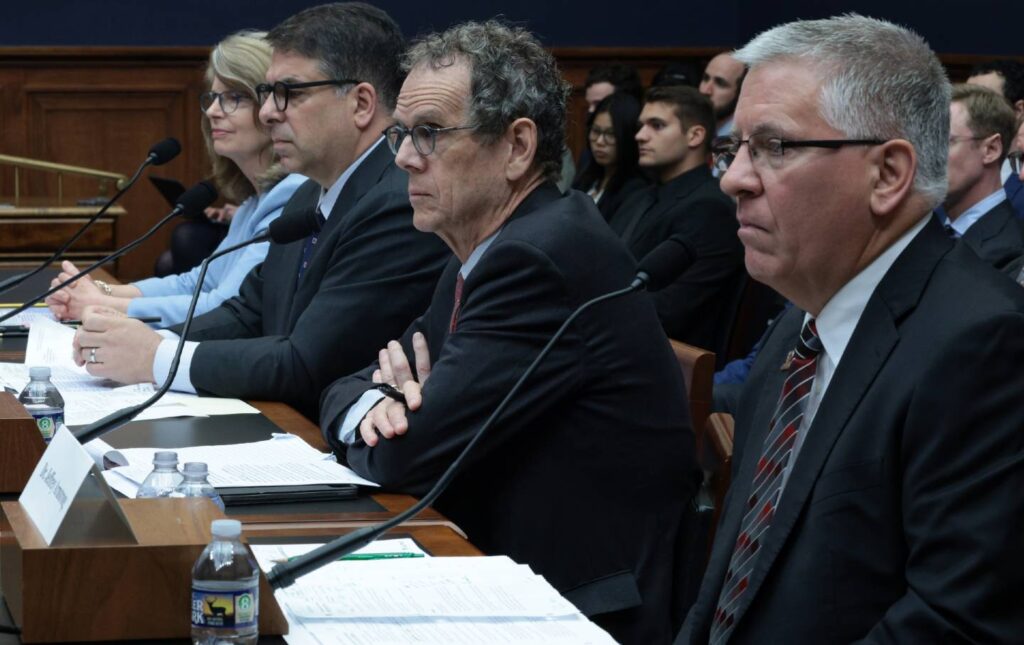Reevaluating the Politics of Campus Antisemitism: A Critical Perspective
The Shift in Congressional Focus on Campus Issues
Earlier this month, I appeared before the House Committee on Education and the Workforce to discuss the troubling rise of antisemitism on university campuses. This marked the eighth hearing conducted by this Republican-led panel over the past two years, each increasingly politicized and less focused on factual accuracy. The initial hearings, which featured university presidents from Harvard, the University of Pennsylvania, and MIT, culminated in the resignation of Harvard and Penn’s presidents amid accusations of insufficient action against antisemitic incidents. Since then, the proceedings have devolved into partisan spectacles, often driven more by ideological agendas than genuine concern for campus safety or free speech.
The Spectacle of Political Posturing
The most recent hearing exemplified this trend, with some members engaging in rhetorical excesses that detract from meaningful dialogue. For instance, Representative Rick Allen (R-GA) delivered a lengthy biblical exegesis, asserting that Jerusalem is the “center of the universe” and invoking Genesis 12:3 and John 4:22 to emphasize divine blessings upon Israel. His comments, which seemed more like a sermon than a legislative inquiry, underscored the panel’s shift away from substantive policy discussion toward ideological grandstanding.
The Role of Law and Free Speech Protections
During my testimony, I emphasized that antisemitism, like other forms of bigotry-racism, sexism, and homophobia-must be condemned. However, it is crucial to recognize that most antisemitic speech is protected under the First Amendment, as established by Supreme Court rulings. For example, the Court has upheld the rights of Nazis to march in Skokie, the Ku Klux Klan to chant racist slogans, and the Westboro Baptist Church to display homophobic signs at funerals. These rulings affirm that universities, which are spaces for free expression, cannot simply shut down speech solely because it is offensive or antisemitic.
Legal Frameworks and Responsibilities
Title VI of the Civil Rights Act mandates that federally funded institutions address antisemitic discrimination, which extends to harassment that targets individuals based on their Jewish identity. Yet, the law sets a high bar: speech must be “severe, pervasive, and objectively offensive” to constitute discrimination that denies equal access to education. Colleges are liable only if they are “deliberately indifferent”-meaning they knew about misconduct and failed to act. Investigations and responses that are less severe do not meet this threshold, and only a small number of institutions have been found in violation of Title VI under current standards.
The Complexity of Antisemitism on Campus
Understanding antisemitism requires nuanced analysis. It is essential to distinguish between anti-Zionism and antisemitism, as well as between protected speech and discriminatory conduct. For example, criticizing Israeli government policies or expressing support for Palestinian rights is not inherently antisemitic. Similarly, engaging in protests or expressing political opinions-such as slogans like “From the river to the sea”-may be protected speech unless directed at individuals in a manner that constitutes harassment or threats.
The Misguided Focus of Congressional Hearings
Despite these legal and factual distinctions, the committee’s Republican members have consistently conflated criticism of Israel with antisemitism, presuming all such expressions are discriminatory. They have also shown little interest in examining the actual incidents or hearing from victims and accused parties. Instead, their focus appears to be on framing universities as breeding grounds for liberal bias, rather than addressing genuine issues of hate and discrimination.
The Political Motivation Behind the Hearings
Some members openly admitted that their interest lies in political gain rather than campus safety. For instance, Rep. Glenn Grothman (R-WI) inquired about the political leanings of students at various universities, and Rep. Joe Wilson (R-SC) questioned the diversity, equity, and inclusion initiatives, implying they are ideological threats. These questions reveal that the hearings are less about combating antisemitism and more about attacking higher education institutions perceived as too liberal.
Historical Parallels and Future Implications
I drew a comparison between these hearings and the McCarthy-era House Un-American Activities Committee, which targeted academia for political reasons under the guise of rooting out subversion. While Chairman Wahlberg dismissed this analogy, history suggests that such investigations often serve to intimidate and silence dissent rather than promote truth and justice.
Moving Toward a Constructive Approach
Addressing antisemitism on campuses requires a balanced approach-one that respects free speech rights while effectively combating hate. Universities have established procedures and committees to handle complaints, and federal agencies like the Department of Education’s Office for Civil Rights are tasked with enforcing anti-discrimination laws. When allegations arise, thorough investigations should be conducted, considering all evidence and context, rather than presuming guilt based solely on accusations.
Conclusion: The Need for Genuine Dialogue
The current congressional hearings, driven by partisan motives, hinder progress by oversimplifying complex issues and conflating criticism with bigotry. A more productive path involves fostering open, honest conversations about antisemitism, free speech, and campus safety-grounded in legal standards and respect for diverse viewpoints. Only through such nuanced engagement can we hope to create educational environments that are both inclusive and free from hatred.
David Cole
The Nation‘s legal affairs correspondent and the George J. Mitchell Professor in Law and Public Policy at Georgetown University

